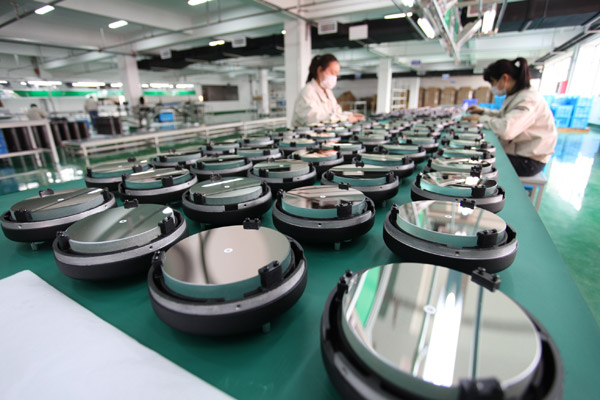Startups see Nantong as first stop to success
(ejilin.gov.cn) Updated: 2016-02-05 10:43Since June 2015, when the Nantong government implemented its five-year plan, leaders have made it a priority to transform the city into an ideal startup destination for young entrepreneurs in the Yangtze River Delta.
According to the plan, Nantong will attract startups through integrated and open entrepreneurial resources, diverse business incubators, a market-oriented operation model and professional services.
One major part of the plan is an online platform named "Innovation in Nantong", which began operations two months after the launch of the five-year plan.
The platform, established by the city's science and technology bureau, provides guidance for startups on government and business policies, financing, human resources and corporate registration.
"We have advertised the platform in cities such as Beijing, Shanghai, Nanjing and Shenzhen,"said Li Jiping, head of the bureau.
On Nov 9, 54 investment institutes in Beijing, Shanghai, Suzhou and Nantong created an alliance together to look for high-potential projects through the platform.
 |
|
Nantong Schmidt Opto-Electrical Technology Co Ltd utilizes more than 30 state-of-the-art production lines from the United States and Japan to manufacture high-end astronomical telescopes.QIU YU / FOR CHINA DAILY |
Tao Tao, a founder of the alliance and chairman of Nantong Zhiying Venture Capital, called Innovation in Nantong a sound platform for entrepreneurial investments and said he has been surprised by the platform’s reach in China.
"We searched for projects, mainly in Beijing and Shanghai, and then I saw an advertisement of the 'Innovation in Nantong' at Zhongguancun Entrepreneurship Street in Beijing".
To date, the platform has had more than 500,000 Web visits.
By the end of this year, Li said the bureau "hopes to match 500 projects with venture capital and angel investments through the platform".
The bureau also aims to help 70 small and medium-sized high-tech companies to gain a public listing on the National Equities Exchange and Quotations, an over-the-counter market on the Chinese mainland known as the third board.
The platform currently houses nearly 270 projects, more than 40 of which have recently received investments.
The bureau has also established offline programs for startups, such as training sessions, competitions, road shows and face-to-face events with experienced entrepreneurs.
Zhu Fang, who conducts research on robotics, raised 56 million yuan ($8.51 million) in funds during a recent road show, which is a presentation by a securities issuer for potential buyers.
Zhu and her team then founded a company in October in a science park in Nantong's Chongchuan district.
Huang Lyuquan, who is working on a project to create intelligent fabric singeing machines, has attended a number of road shows in recent years but failed to secure any investments.
He said a training program from the platform helped him gain a better understanding of what it takes to be an entrepreneur. He realized that he wasn't publicizing his project effectively.
In September last year, another training program from the platform attracted nearly 200 young entrepreneurs nationwide.
Zhang Yan, who is from Shanghai, attended the event because he wanted to see if his project had any shortcomings.
With the help of a group of successful entrepreneurs invited by the organizers of the three-day event, Zhang's project and 16 others received help in constructing their business models.
Nantong currently has 15 industrial parks and incubators for startups. Twenty more are under construction. Last year, 15 parks and incubators received 12.4 million yuan in funds from city and provincial governments.
- Shanghai teachers among world's most qualified: OECD survey
- Xi sends audio greeting on social media ahead of Lantern Festival
- Missing children found safe in nearby village; 5,000 had been searching
- China to ease permanent residence application for foreigners
- Rich Chinese splurge on sportswear as luxury's lustre dims
- Demand surges for DNA tests after population policy change
- Beijing, 5 other cities to fight smog together
- More youth involved in drug trade
- Stronger united Europe is 'in the interests of China'
- Guideline issued to increase govt transparency







